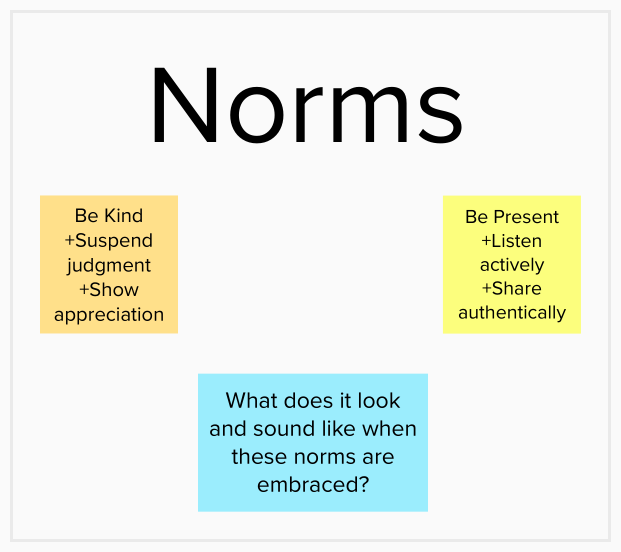Some teams do not see a need for meetings; they work in close proximity, talk when the need arises, and spend lunch and/or breaks together, visiting all the while. Close teams talk often as a foundational aspect of their relationship building. Team members may frequently ask each other about family, pets, recreation, and common friends, reinforcing everyone’s sense of belonging. They may also discuss impromptu work issues, plans, and support each others’ well-being.
Focus: shift casual conversation to intentional team discussions
Spend time on the right things and the right things happen. When relationship building leads to familiarity, productivity becomes a powerful team development topic. To add a performance target to team interactions, meet regularly with an agenda and norms to increase team members’ participation. Individuals have different communication preferences; work to ensure everyone has what they need to contribute to discussions. A few things to try:
- set clear meeting parameters
- purpose
- norms
- start and end time
- share the purpose or main topic before the meeting
- everyone can process at their optimal pace
- ensure uninterrupted time for each person to speak
- proactively address tensions
- build and maintain trust
- increase authenticity

Frequent, intentional conversations increase team members’ ability to share observations, ideas, and thinking about their work, productivity, and opportunities. Regular conversations about progress, issues being encountered, and successes support the team to be even more engaged in their mission. Communication is improved, expectations are clarified, and needs can be identified and supported when team discussions focus on performance while helping each other to succeed.
